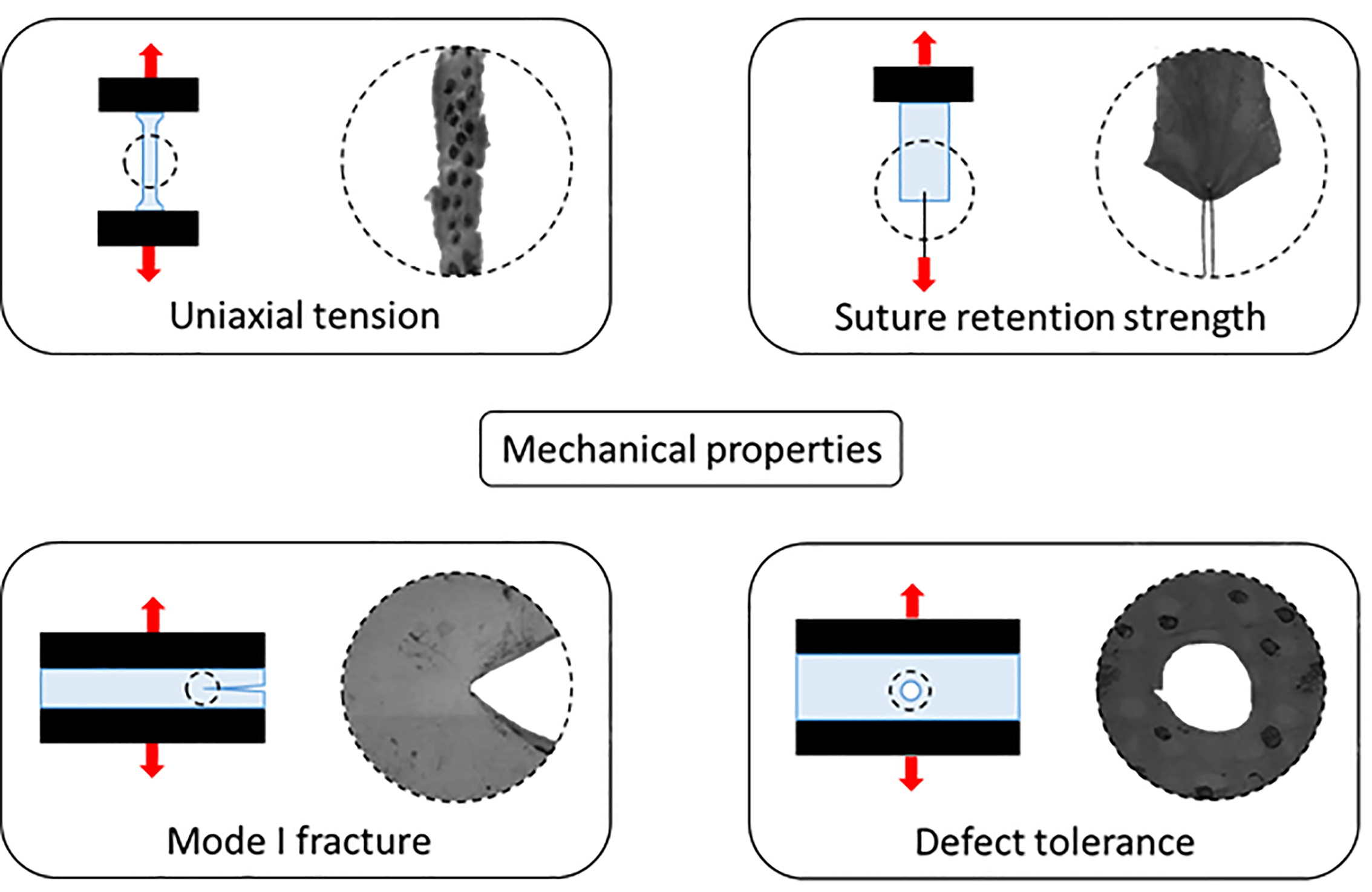The Effect of Environmental Conditions on the Biomechanical Properties of Soft Collagenous Tissues
Soft collagenous tissues (SCT) as the fetal membrane (FM) or the liver capsule (GC) serve vital functions and undergo large deformations during their lifespan. Failure of these can result in perilous situations, which point out the importance of these tissues. Understanding the mechanical properties of SCT might help to explain possible mechanisms leading to preterm premature rupture of the membrane (PPROM), a known issue not only for regular pregnancies but also for fetal surgeries.
Due to improved imaging and sampling techniques and the reduced risk of fetal surgeries by the technical and clinical progress, the number of indications for fetal surgery are increasing. Although the aforementioned preterm delivery remains a risk [2]. Numerous studies investigated the mechanical properties of the FM and helped characterize the different components of the FM. Based on clinical observations and procedures additional experiments will be conducted to gather insights in possible weakening of the FM during fetal surgery caused by changes in the environment. Previous investigations showed that these environmental conditions can affect the mechanical properties significantly [3].

This project aims to gain further insights to the mechanical properties of SCT, especially the FM. Based on difficulties in clinics possible detrimental environments are identified and the influence on SCTs will be investigated on the macroscale with mechanical experiments, as for example the mode I fracture test. Possible studies on the microscale will be conducted for analysis of the collagen network and possible influences on its structure due to the environmental effects.
Collaborations
- Department of Development and Regeneration cluster Woman and Child, Biomedical Sciences, KU Leuven, Leuven, Belgium
- Department of Obstetrics, University Hospital Zurich, Zurich, Switzerland
Funding
This work is supported by the Innosuisse 55482.1 IP-LS grant with the title "Prevention of pre-term rupture of the fetal membrane after fetoscopic surgery".
[1] Bircher et al. “On the defect tolerance of fetal membranes”, Interface Focus, Vol. 9, 2019.
[2] Amberg et al. “Why do Fetal Membranes Rupture Early after Fetoscopy? A Review”, Fetal Diagnosis and Therapy, 2021.
[3] Bircher et al. “Influence of osmolarity and hydration on the tear resistance of the human amniotic membrane”, Journal of Biomechanics, Vol. 98, 2019.
